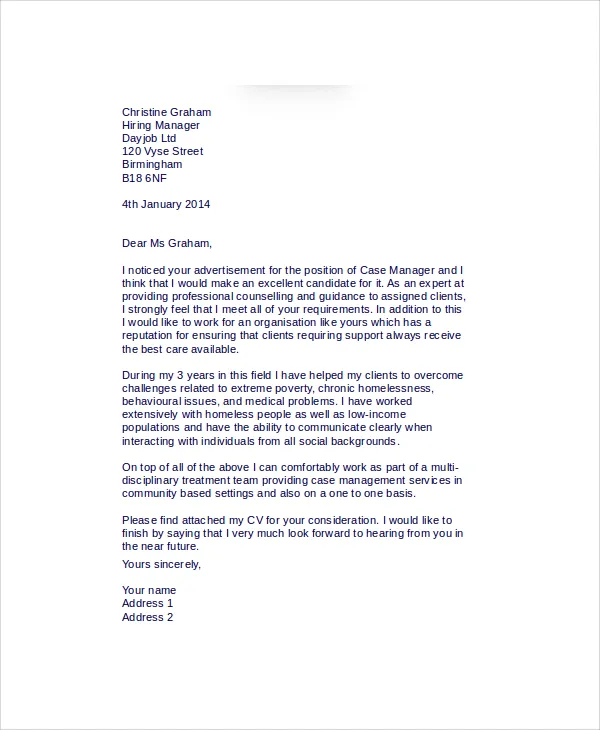Understanding the Cover Letter’s Role
A well-crafted cover letter is your first introduction to a potential employer. It’s your chance to showcase your personality, passion, and qualifications beyond what’s listed in your resume. For a case worker position, this is especially crucial. The cover letter allows you to demonstrate your understanding of the role, your empathy, and your ability to connect with others. It’s the document that can set you apart from other applicants, highlighting your unique skills and experiences that make you an ideal candidate. It should not merely repeat your resume; instead, it should expand on your key qualifications, providing specific examples of how you’ve successfully applied them in the past. This is where you articulate why you are the right person for the job. The role of the cover letter extends to showing your understanding of the organization’s mission and how your values align with theirs. It is your opportunity to create a narrative that captures the hiring manager’s attention and compels them to delve deeper into your qualifications.
What is a Case Worker?
A case worker, also known as a social worker or social services specialist, is a professional who assists individuals and families facing various challenges, such as poverty, illness, disability, or abuse. Their primary role is to provide support, advocacy, and resources to help clients improve their quality of life. Case workers assess clients’ needs, develop care plans, and connect them with appropriate services, such as housing, healthcare, and financial assistance. They also monitor clients’ progress and provide ongoing support. Case workers often work in diverse settings, including government agencies, non-profit organizations, hospitals, and schools. They need to be compassionate, patient, and possess strong interpersonal and problem-solving skills. Furthermore, they must be able to work with diverse populations and maintain strict confidentiality. Case workers may specialize in certain areas, such as child welfare, mental health, or substance abuse. They are essential in creating positive change within communities.
Essential Skills for a Case Worker
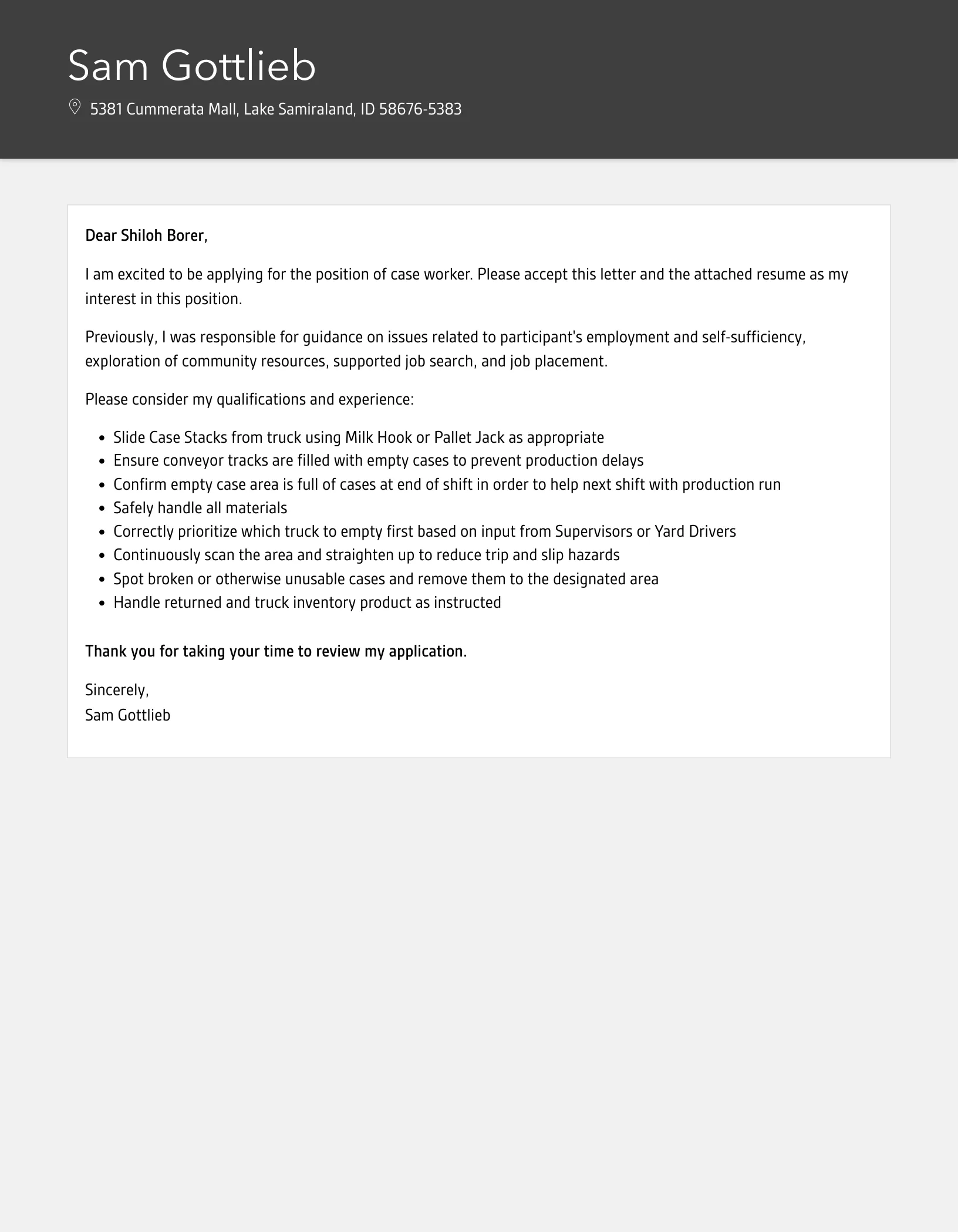
A successful case worker requires a diverse set of skills. Strong communication skills, both written and verbal, are essential for interacting with clients, colleagues, and other professionals. Empathy and compassion are critical for building trust and understanding the needs of clients. Problem-solving skills enable case workers to assess situations, develop effective care plans, and find solutions to complex issues. Organizational skills are vital for managing multiple cases, maintaining records, and meeting deadlines. Case workers must also possess cultural sensitivity and the ability to work with diverse populations. The capacity to work independently and as part of a team is important. Furthermore, case workers must be able to remain calm and composed under pressure. They often deal with sensitive and stressful situations. Another key skill is the ability to advocate for clients, ensuring they receive the necessary resources and support.
Writing a Strong Cover Letter
Crafting a strong cover letter is a crucial step in your job application process, especially when applying for a case worker position. A compelling cover letter should immediately capture the reader’s attention, clearly stating the position you are applying for and how you learned about it. The body of your letter is where you make your case; highlight your relevant experience and skills, providing specific examples of how you have assisted clients in the past. Quantify your achievements whenever possible. Focus on how your qualifications align with the specific requirements listed in the job description. Show, don’t just tell, by providing concrete examples of your accomplishments. Mention how your skills can benefit the organization. Conclude your letter with a strong call to action. Express your enthusiasm for the opportunity and reiterate your interest in an interview. Thank the hiring manager for their time and consideration.
Formatting Your Cover Letter for Case Worker Jobs
The formatting of your cover letter is as important as its content, particularly in the field of case work. Ensure your letter is easy to read and well-organized. Use a professional font such as Times New Roman, Arial, or Calibri, and maintain a consistent font size (11 or 12 points). Set clear margins (1 inch on all sides) and use single-spacing within paragraphs with a blank line between paragraphs. Start with your contact information at the top, followed by the date and the hiring manager’s contact information (if available). Address the letter to a specific person whenever possible. Keep your cover letter concise; aim for a single page, typically divided into three to four paragraphs. Use headings to guide the reader and break up large blocks of text. Proofread meticulously to eliminate any typos or grammatical errors. A well-formatted cover letter demonstrates your attention to detail and professionalism, qualities essential for a case worker.
Key Elements to Include
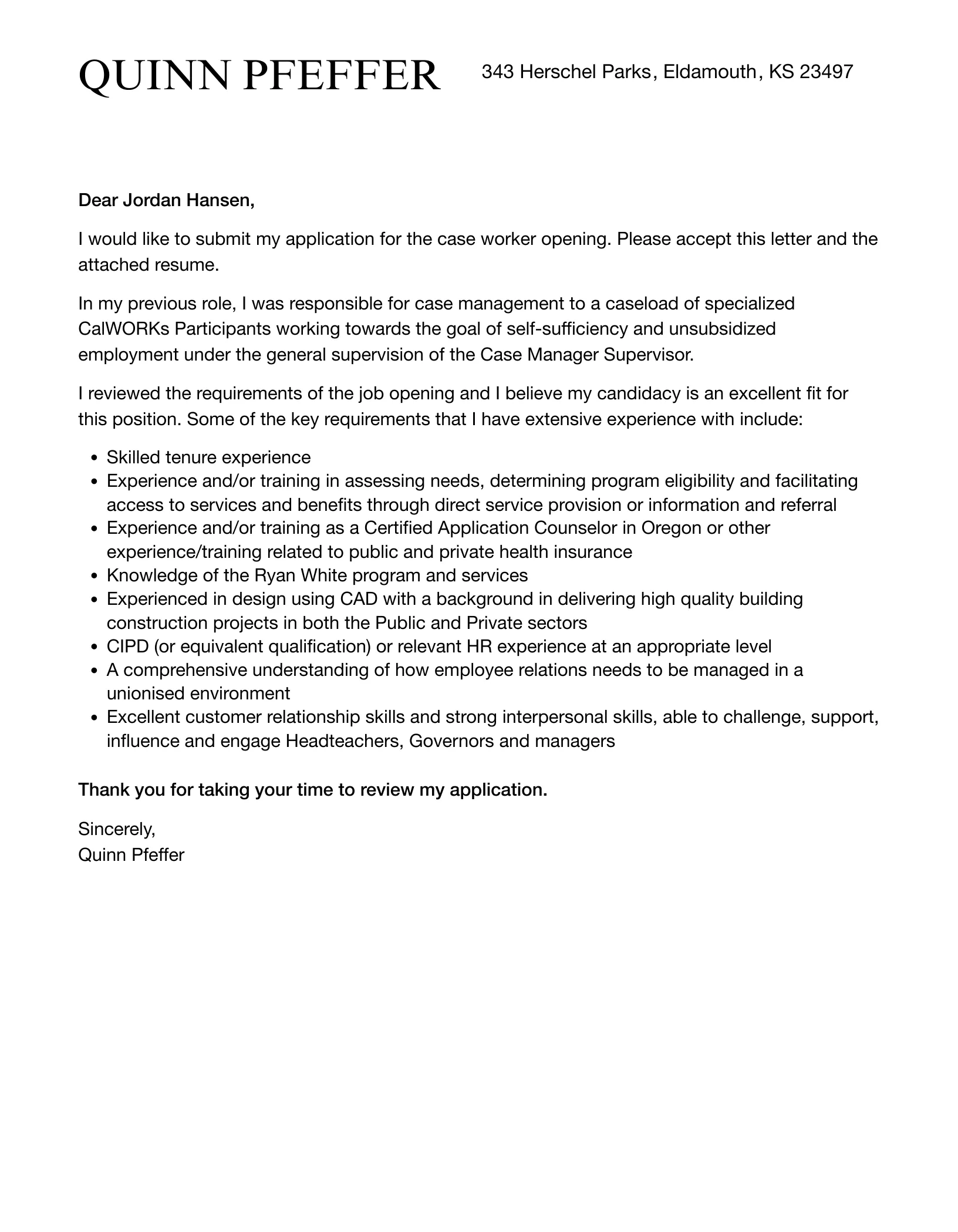
Your cover letter should include several key elements to effectively convey your qualifications for a case worker position. Begin with a compelling opening that states the position you are applying for and how you learned about it. In the body of your letter, highlight your relevant experience, focusing on how your skills and experience align with the job requirements. Provide specific examples of your achievements and quantify them whenever possible. For instance, describe how you successfully managed a caseload, increased client engagement, or improved outcomes. Include a brief section on why you are interested in the specific organization, demonstrating that you have researched their mission and values. Showcase your understanding of the challenges and rewards of case work, as well as your commitment to helping vulnerable populations. End your letter by expressing your enthusiasm for the opportunity and including a call to action, such as requesting an interview. Always tailor these elements to the specific job description to show that you understand the organization’s needs.
Highlighting Relevant Experience
When highlighting your relevant experience in your cover letter, provide concrete examples of your achievements. Instead of simply stating your responsibilities, describe the impact of your work. For instance, if you have experience in crisis intervention, explain how you de-escalated a volatile situation or provided immediate support to a client. If you have worked with a specific demographic, mention the skills and insights you gained. Quantify your achievements whenever possible. Did you increase client satisfaction scores? Reduce case backlog? Or secure funding for a critical program? Also, discuss the skills you have developed through your experiences. Highlight your abilities in case management, assessment, communication, advocacy, and crisis intervention. Tailor your examples to match the specific requirements of the case worker position you are applying for, demonstrating that you have the skills and experience needed to succeed in the role.
Showcasing Your Skills
Your cover letter is an ideal place to showcase the skills that make you an excellent case worker. Focus on both hard and soft skills. Hard skills include case management, needs assessment, and proficiency with relevant software or databases. Soft skills include empathy, communication, problem-solving, and cultural sensitivity. Provide concrete examples of how you have applied these skills in your past experiences. For example, if you excel at communication, describe how you built rapport with clients from diverse backgrounds or mediated a conflict. If you are a strong problem solver, illustrate how you developed and implemented an effective care plan. Be specific. Use action verbs to bring your accomplishments to life and provide evidence of your abilities. Tailor your skills to the job description, emphasizing the skills that the employer values most. This targeted approach will help you stand out from the competition and showcase your value to the organization.
Tailoring Your Cover Letter
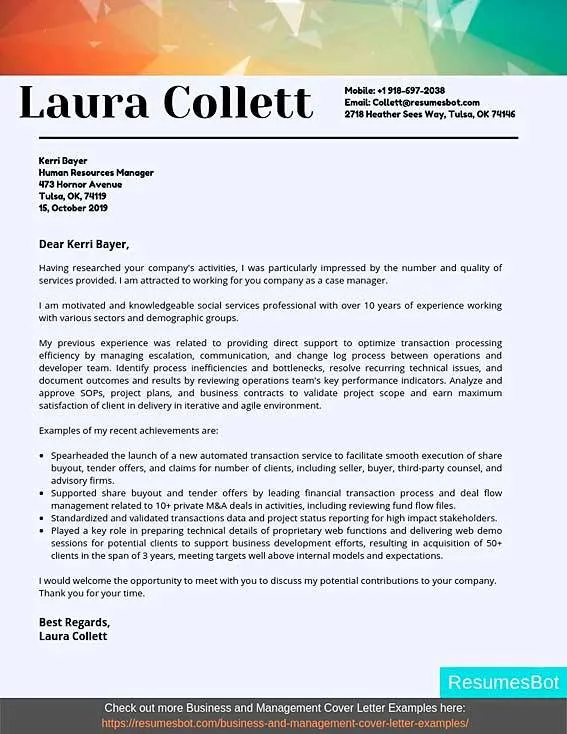
One of the most effective ways to increase your chances of getting hired is to tailor your cover letter to each specific job. A generic cover letter will often be overlooked. Start by carefully reviewing the job description and identifying the key skills, experience, and qualifications the employer seeks. Then, customize your letter to align with those requirements. Modify your opening paragraph to mention the specific position and the source of the job posting. Highlight the experiences and skills that match the job’s needs. Use the same keywords and phrases that are used in the job description, but do not overdo it. Demonstrate your understanding of the organization’s mission and values by mentioning them. This shows that you are genuinely interested in working there. Tailoring your cover letter demonstrates that you have invested time and effort in the application and that you are truly interested in the position.
Addressing Specific Job Requirements
When applying for a case worker position, it is crucial to directly address the specific requirements outlined in the job description. The employer has already identified the most important qualifications, so your cover letter must show how your skills and experience align with those requirements. First, identify the key requirements. If the job description mentions experience with a specific population, provide concrete examples of your work with that group. If it requires knowledge of certain software or databases, mention your proficiency with these tools. If the job requires you to be bilingual or have specific certifications, make sure to highlight those qualifications. Use the job description as a guide, mirroring the language used by the employer. Tailor your examples to demonstrate how you have successfully met those requirements in the past. Address each requirement explicitly, showing the hiring manager that you are a good fit.
Common Mistakes to Avoid
There are several common mistakes that can undermine your cover letter and reduce your chances of getting hired. Avoid generic, one-size-fits-all cover letters. Take the time to tailor your letter to each specific job. Do not simply rehash your resume. The cover letter is your chance to expand on your qualifications. Avoid typos, grammatical errors, and poor formatting. Proofread carefully before submitting your application. Do not use overly formal or informal language. Maintain a professional tone throughout the letter. Do not exceed the one-page limit, and avoid including irrelevant information. Omit any negative comments about past employers or colleagues. Finally, failing to follow the instructions provided in the job posting is a common mistake. Always review and adhere to the application guidelines. By avoiding these mistakes, you will increase the chances of making a positive impression on the hiring manager.
Proofreading and Editing Your Cover Letter
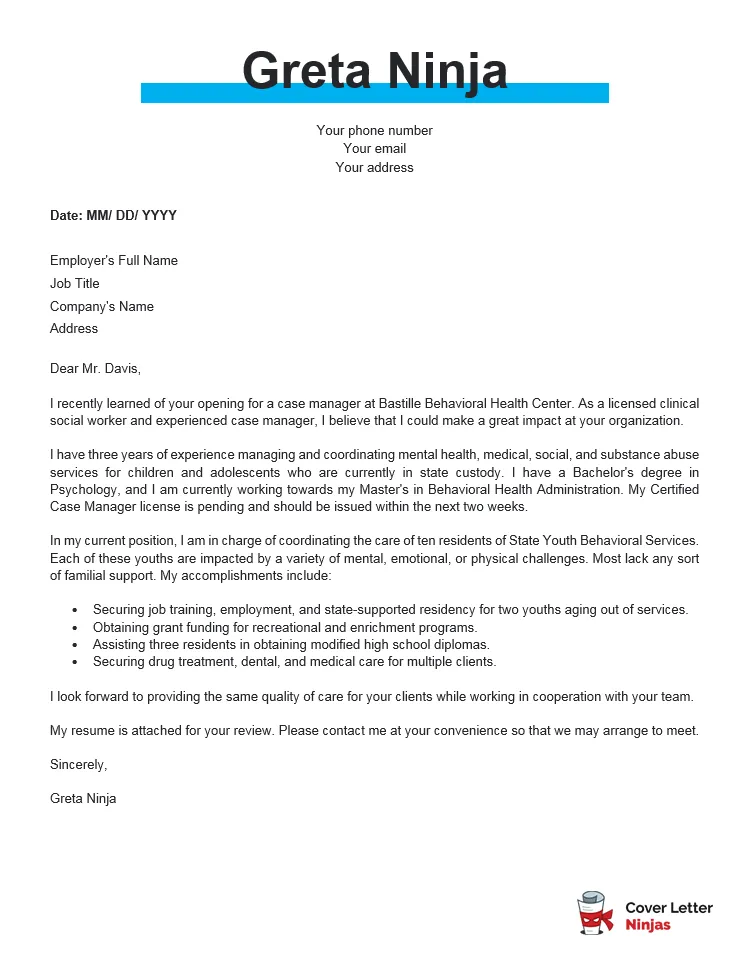
Proofreading and editing your cover letter is an essential step in the job application process. Errors, whether grammatical, spelling, or formatting, can create a negative impression, suggesting a lack of attention to detail and professionalism. After you have written your cover letter, take a break and then review it with fresh eyes. Read it slowly, sentence by sentence. Check for typos, grammatical errors, and awkward phrasing. Ensure that the tone is professional and the language is clear and concise. Ask a friend, family member, or career counselor to proofread your letter. Another perspective can often identify errors that you may have missed. Use spell-check and grammar-check tools, but remember that these tools are not foolproof. Pay attention to the overall flow of your letter. Does it make sense? Does it tell a compelling story about your qualifications and experience? A well-proofread and edited cover letter demonstrates your commitment to excellence and increases your chances of making a positive impression on the hiring manager.
Making a Positive Impression
Creating a positive impression with your cover letter is key to securing an interview. Begin by making a strong first impression. The opening paragraph should immediately capture the reader’s attention. Use clear, concise language throughout. Avoid jargon or overly technical terms. Focus on what you can offer to the organization. Tailor your letter to the specific requirements of the job. Include examples of your past successes and quantify them whenever possible. Show genuine enthusiasm for the position and the organization. Demonstrate your understanding of the challenges and rewards of case work. Maintain a professional and respectful tone throughout the letter. Close with a strong call to action, such as expressing your interest in an interview. By crafting a well-written, well-formatted, and tailored cover letter, you will significantly increase your chances of making a positive impression.
Following Up After Submission
Following up after submitting your cover letter and resume can demonstrate your continued interest in the position. While it is important to show initiative, be mindful of the employer’s preferences. If the job posting specifies a deadline for applications, wait a reasonable amount of time after that date before following up. You can follow up via email or phone. When you follow up, reference the specific position you applied for. Reiterate your interest in the opportunity and briefly mention something specific from the job description that resonated with you. Keep your follow-up concise and professional. Thank the hiring manager for their time and consideration. If the employer has not provided a timeline for the hiring process, you can gently inquire about the status of your application. However, be patient and avoid being overly persistent. A well-timed and professional follow-up can demonstrate your enthusiasm and reinforce your interest in the position.
